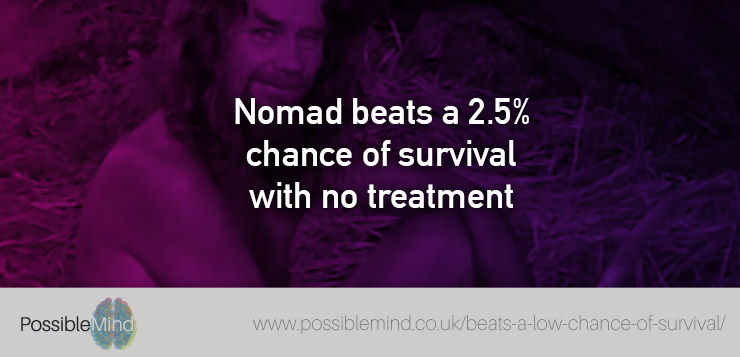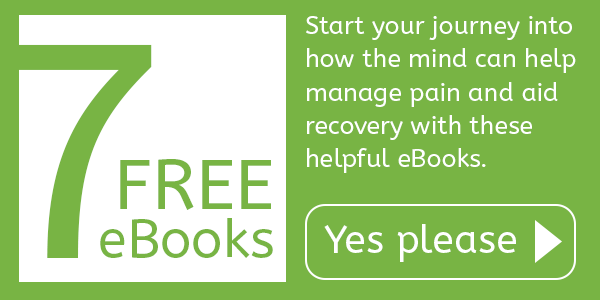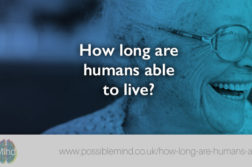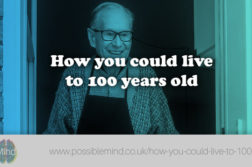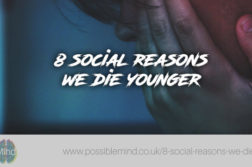‘I’d rather die than have a transplant’ Nomad, 68, reveals how he recovered from kidney failure WITHOUT any treatment – despite being given a 2.5 per cent chance of survival
A nomad has claimed he recovered from kidney failure without any medical treatment – despite doctors giving him a 2.5 per cent chance of survival.
New Zealand native Peter, 68 and his partner Miriam, 38, from the Netherlands, first met Ben Fogle in 2019, where they introduced the presenter to their unconventional way of life.
At the time, the couple, who are married but in an open relationship, hopped from one place to the next, sleeping in tents and explained how they used their own urine to wash their hair.
A nomad has claimed he recovered from kidney failure without any medical treatment – despite doctors giving him a 2.5 per cent chance of survival.
New Zealand native Peter, 68 and his partner Miriam, 38, from the Netherlands, first met Ben Fogle in 2019, where they introduced the presenter to their unconventional way of life.
At the time, the couple, who are married but in an open relationship, hopped from one place to the next, sleeping in tents and explained how they used their own urine to wash their hair.
A nomad has claimed he recovered from kidney failure without any medical treatment – despite doctors giving him a 2.5 per cent chance of survival.
New Zealand native Peter, 68 and his partner Miriam, 38, from the Netherlands, first met Ben Fogle in 2019, where they introduced the presenter to their unconventional way of life.
At the time, the couple, who are married but in an open relationship, hopped from one place to the next, sleeping in tents and explained how they used their own urine to wash their hair.
‘I started crying. It was such a burden emotionally.’
After the dire diagnosis, Peter had to weigh up his options – aware that starting a treatment plan would hinder the couple’s nomad lifestyle.
He said: ‘I figured that if I had to do dialysis, I had to be near a hospital, because you have to go every three days. If I had a kidney transplant, I’d had to go on immuno-suppressant drugs for the rest of my life.
‘And every illness that I’d get would almost all lead to hospital treatment. The immuno-comprised people were the ones who really had the worst time with Covid.
‘I just couldn’t see myself living like that, I thought “if that’s what’s going to happen, I’d rather leave. I’d rather die than live like that.”
‘So I decided not to take that treatment and prepare for the end.
‘I did think about Miriam but my thought was that the kind of life that I would have, would probably be a semi suburban life, for the rest of my life. I’d be a bigger burden on her.’
Miriam recalled how she told Peter to get the transplant and even offered her own kidney, determined to do whatever it would take to keep her partner alive.
But Peter eventually told her: ‘If you really love me, you have to let me go too.’
Miriam said Peter’s approach made her question her own future too. She recalled thinking: ‘If Peter is going to die, what am I going to do the next day?’
‘That also made me more independent and stronger and grown up.’
She eventually accepted Peter’s decision not to go with the proposed treatment.
She continued: ‘It was very brave to say, “I’d rather die than go on dialysis, and see what happens.” And he didn’t die!’
In response, Ben said: ‘ Can we just take a moment to marvel [at that].’
Instead of following a medical treatment, Peter said he wanted to heal his kidney problems by leading a healthier lifestyle.
‘I didn’t take any medicine whatsoever. Neither the mainstream or alternative ones,’ he told Ben.
‘I couldn’t see why the body couldn’t heal itself. If I did everything possible, water, sleep, moderate exercise, why couldn’t it heal itself?’
However, the couple did return to New Zealand during Peter’s recovery – aware that it was no longer possible for him to live outside like Miriam and him had been doing.
But after finding life too restrictive and too expensive in New Zealand, they eventually returned to Bulgaria, where they bought a small house for £2,190.
There, they have been foraging the land for food and growing their own vegetables.
‘It was the right move, I’m much stronger than I was a year and a half ago,’ Peter said.
Miriam also told Ben that Peter’s condition has changed the way they see life.
‘We don’t take each other for granted. Things can go wrong, his kidneys can go into failure again. Easily. And then it’s all over,’ she said.
The couple revealed that while they have a house, they don’t have lights, and will sleep when it gets dark in the Winter months.
‘The winter is pretty extraordinary, because you’ll get a metre and a half of snow and then it freezes, there is truly nothing you can do,’ Peter told Ben.
‘So we don’t have any lights, and we just sleep when it’s dark, which is many many hours in the winter. But I think that keeps us very healthy,’ Miriam said.
However, they said they do use solar panels in order to power their home for cooking and the internet.
The pair receive royalties from two books Miriam has written about her experience in the wilderness, and use the money for necessities.
They also run a course for people from all over the world, where they combine philosophy and outdoors skills such as fire lighting, archery and foraging.
Ben wondered if Miriam regretted the times where the pair would go from one place to the next, but she told him she was as happy in Bulgaria as she was elsewhere.
‘I very much enjoy this. I don’t think my happiness is dependent on my activities,’ she told him.
‘I’m pretty much happy anywhere, as long as the environment is beautiful and natural, and quiet and I eat and sleep healthy.
Peter added: ‘You don’t want to let your lifestyle trap you, so to remain fluid means you can live any way.
Miriam told Ben she had no plans to have children, because Peter doesn’t want any, and she’d ‘rather have Peter than kids.’
But she added she is realistic about what the future hold for the couple.
‘I don’t worry so much, he seems quit healthy to me, I am realistic about it. He won’t live for ever and with a bad kidney he won’t leave for no more than 10 years.
‘So we want to use our time very wisely,’ she said.
Peter also told Ben he had to ‘make sure not to overstretch,’ in order to look after his health.
‘Death is not the problem, it’s getting to death that’s the problem,’ he added.
He admitted that he knows that because of the age gap between he and Miriam, their relationship doesn’t have a longterm trajectory ahead of them.
‘The greatest crime I can do against myself is waste time,’ he told Ben.
‘We think we live long lives, but when we look at it, relative to the world we’re in, we’re just fireflies,’ he smiled.
After 12 years together, the couple said they still consider themselves an open relationship, in spite of the fact they are married.
But Miriam tempered that she would only start another relationship if she had a strong connection with someone.
For the near future, she revealed she had plans to travel to Armenia, Azerbaijan and Georgia with the idea of finding another small house where the couple could move to.
‘Because we have this idea of, if we can find one, , we can find two [houses],’ she told Ben.
‘Instead of moving constantly, we stay in one place for a while,’ Peter said.
As a teen, Miriam was an accomplished athlete but shunned a sports career in favour of travelling the world and at 22 while on a journey through India she met Peter.
Meanwhile following a PHD in Ecology Peter had worked as a lecturer before deciding to leave his job and live life on the road.
When Ben first met them, the couple had no permanent address, travelling from place to place with a rucksack full of belongings.
When it came to survival Peter was tasked with the cooking while Miriam took on the role of gatherer, hunting animals for their meat using a bow and arrow, something she admitted was a far cry from her former life.
The couple occasionally had to make a trip to a supermarket as Ben discovered when he and Peter stopped off at a convenience store in a small Bulgarian village for some supplies that couldn’t be found in the wild – including ice cream.
Peter and Miriam funded their lifestyle with their £40,000 life savings, estimating they spent around £3,000 a year.
Peter explained at the time: ‘People often ask what would happen if you ran out of money. Well we’d go get a job, simple.’
When it came to washing, Miriam stuck to streams and brooks revealing the very unusual shampoo she used to Ben – her own urine.
After Ben pointed out that many would be horrified by her approach Miriam said: ‘For me going to work every day, sitting in traffic jams, that’s uncomfortable for me.’
This article was written by Claire Toureille and was first published on dailymail.co.uk on 4th April 2023.
If you like this post you will also enjoy:
- Live long and prosper.
- What Tennis can teach us about overcoming discomfort and illness..
- Mind Power and Belief for Recovery and Healing.
- Unlikely, but still possible.
- The Healing Power of Illness Book Overview.
- The Grace Of Not Knowing.
Further Reading:


